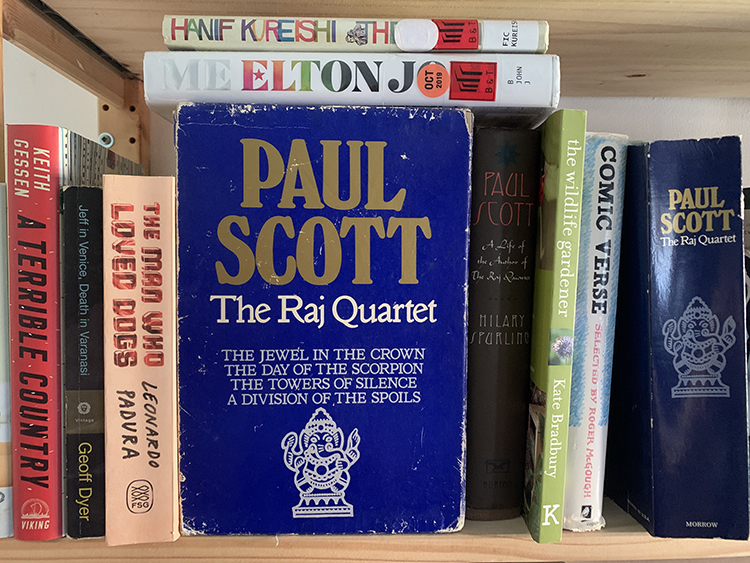What are you reading?
Becoming a writer is like taking care of your body and mind. It’s a one-day-at-a-time thing.
You can’t become a beacon of sobriety tomorrow if right now, you’re a bar-fly drunk. And it’s dangerous to try a one-legged-dancer pose in yoga without attending some level one classes to get the hang of things, first. I tell you this as a writing coach who happens, also, to be a recovering alcoholic, and a yoga teacher.
I speak from experience!
Most writing coaches will drill you in the importance of writing something every day. A hundred words. A thousand words. Just to develop the writer’s muscles. But I start by asking anyone I’m working with: What are you reading? Or, since many of us don’t actually read too much, intentionally, these days, I might ask, what do you like to read? What’s on your bookshelf?
In the last six months, glancing at my bookshelf, I’ve read a lengthy and fascinating book by a British author, about colonialism. And then, because I was interested in the work, I read the writer’s biography, which sadly revealed him to be an utterly miserable, abusive drunk. I’ve read a book by a Cuban author about the Spanish agent Stalin sent to Mexico City to kill his rival, Trotsky, and a fictional memoir by a Russian academic about his year in Moscow with his grandmother. I might dip into a book about wildlife gardening by a friend, and a book of comic verse that my dad used to read to me as a child, just to lighten the mood. I also read Elton John’s biography. And there was a book by the author of My Beautiful Launderette, about a man whose wife is having an affair, which I couldn’t finish. It was just too miserable.
I often tell myself to read more books by women, and lighter work that’s a little jollier. But my taste, in general, is summarized by “lonely men in exotic climes.” In other words, I read what appeals to me, and I don’t judge myself too harshly. I love anything by Ian Fleming, for example, even though a lot of it, from a writer’s perspective, is garbage.
The point is that by aiming to read 50 pages each day, usually, first thing in the morning, I feel my writer’s brain sparking. It goes off in directions as I return to the words on the page. It considers other possibilities. It acquires a sense of rigor.
It’s where good writing starts.
I’ve kept a spreadsheet of the books I’ve read since 2017, and so, I can tell you what my favorite 26 books have been, over the period:
|
Travels with My Aunt |
Graham Greene |
|
Berta Isla |
Javier Marias |
|
The Raj Quartet |
Paul Scott |
|
The Man Who Loved Dogs |
Leonardo Padura |
|
Out of Sheer Rage |
Geoff Dyer |
|
Ways of Escape |
Graham Greene |
|
Sweet Tooth |
Ian McEwan |
|
Shark’s Fin and Sichuan Pepper |
Fuchsia Dunlop |
|
Great Granny Webster |
Caroline Blackwood |
|
Brighton Rock |
Graham Greene |
|
The Quiet American |
Graham Greene |
|
The Little Drumer Girl |
John Le Carre |
|
Our Man in Havana |
Graham Greene |
|
The Tailor of Panama |
John Le Carre |
|
Savage Feast |
Boris Fishman |
|
Agent Running In The Field |
John Le Carre |
|
Spring |
Ali Smith |
|
Autumn |
Ali Smith |
|
Small Fry |
Lisa Brennan-Jobs |
|
Paul Scott: The Life of the Author of the Raj Quartet |
Hillary Spurling |
|
The Housing Lark |
Sam Sevlon |
|
Difficult Women |
David Plante |
|
The Lonely City |
Olivia Laing |
|
A Visit to Don Otavio |
Sybille Bedford |
|
Jigsaw |
Sybile Bedford |
|
The Rainbow |
DH Lawrence |
Want to deepen your writing practice, but not sure where to start? Want to talk about James Bond novels? Or how appallingly Steve Jobs treated his daughter? I’m your friend.
.


